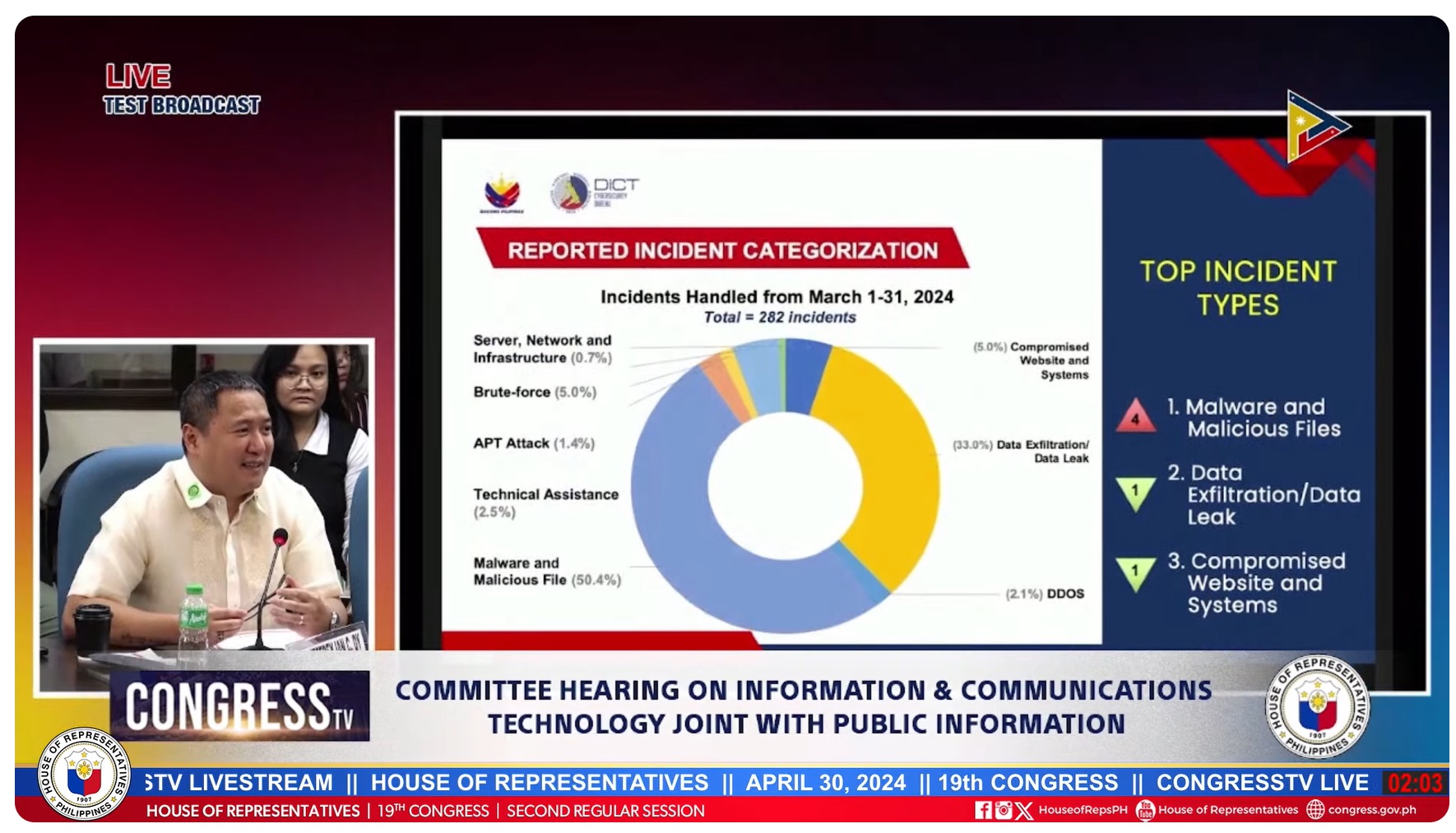DICT thwarts majority of cyberattacks on government agencies
Project SONAR proves effective, prevents hundreds of cyberattacks
At A Glance
- There were 281 reported hacking incidents against Philippine government organizations between January and March 2024, with the DICT successfully resolving 90% of them.
- The DICT's early detection systems were effective. They neutralized 811 initial hacking attempts, preventing over 74% of them from escalating.
- Project SONAR, a network scanning initiative by the DICT, identified 30,682 vulnerabilities in over 2,000 online assets, highlighting significant security risks.
- The congressional hearing is focused on understanding the extent of cybersecurity gaps and improving security protocols and funding.
- The DICT's proactive efforts are crucial in protecting national security and public services, demonstrating their commitment to combating the growing sophistication and frequency of cyber threats.

DICT Undersecretary for Infostructure Management, Cybersecurity, and Upskilling Jeffrey Ian C. Dy reports significant success in preempting cyber threats, with DICT's advanced detection systems and Project SONAR leading the charge in national cybersecurity enhancements.
SONAR, which stands for "Security Operations and Network Analysis Research," is an initiative spearheaded by the Department of Information and Communications Technology (DICT) under the leadership of Secretary Ivan Uy.
The primary goal of Project SONAR is to enhance the country's ability to detect, analyze, and respond to cybersecurity threats across critical infrastructure and networks.
SONAR aims to create a robust defense mechanism against cyberattacks by deploying advanced monitoring and analysis tools.
During a congressional hearing, Usec. Dy revealed alarming statistics on rising cyberattacks against Philippine government agencies. However, he emphasized the DICT's proactive efforts in mitigating these threats.
Usec. Dy reported that from January to March 2024, 281 hacking incidents were officially recorded. While the DICT resolved 90% of these, a significant number of attempted attacks were successfully thwarted before they could cause damage.
Early detection systems prove vital
According to Dy, 811 early-stage hacking attempts targeting 28 government agencies were detected and neutralized thanks to the DICT's National Security Operations Center (NSOC). This equates to over 74% of total hacking attempts being stopped before they could escalate, highlighting the importance of proactive cybersecurity measures.
Project SONAR exposes vulnerabilities
The DICT's Project SONAR, a network scanning initiative, further uncovered a staggering number of potential security risks. Scans of over 2,000 online assets revealed 30,682 vulnerabilities. While concerning, it also demonstrates the DICT's commitment to identifying weaknesses. Currently, agencies are actively working on addressing 14% of these vulnerabilities.
Investigation focuses on cybersecurity gaps
The ongoing congressional investigation aims to understand the extent of the hacking incidents and identify shortcomings in the government's cybersecurity infrastructure. Lawmakers are expected to work with the DICT to improve security protocols, increase funding, and develop more effective defenses against cyberattacks.
Usec. Dy's testimony highlights the urgent need for intensified cybersecurity efforts across all government agencies. While the growing sophistication and frequency of hacking attempts pose a significant threat, the DICT's diligence in detecting and proactively stopping over 74% of the attacks demonstrates its commitment to protecting national security and public services.